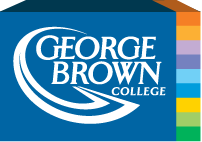About Behavioural Science Technician Program in George Brown College
Behavioural Science Technician is a two-year diploma program that provides students with an opportunity to study applied behaviour analysis (ABA). This field of study helps prepare you for work that is often related to developmental disabilities, brain injury, gerontology, and behavioural disorders. A common misconception about this program is that it involves teaching students counselling and "talk therapy." It does not.
The themes in the program include:
- behavioural theory and application
- program development
- scientific method
- ethics and professionalism
- diversity
- general education with an emphasis on practical application in the field
PROGRAM STANDARDS AND LEARNING OUTCOMES
The graduate has reliably demonstrated the ability to:
- Implement effective behaviour analytic intervention strategies based on the science of Applied Behaviour Analysis (ABA) in order to increase desired behaviours, teach new skills, and decrease contextually problematic behaviours.
- Integrate background information and knowledge of special populations into therapeutic practice, in order to develop behavioural interventions using a behaviour analytic approach.
- Communicate with various stakeholders the behaviour analytic principles, processes, and concepts central to the interventions being provided in order to enhance quality of service.
- Compile measurements of behaviour in accordance with the ONTABA standards of practice and the Behaviour Analyst Certification Board's Guidelines for Responsible conduct in order to conduct behavioural assessments and develop behavioural interventions.
- Apply systems thinking to behavioural processes related to socially significant behaviour change in order to ensure the sustainability of behaviour change programs that increase an individual’s quality of life.
- Adhere to federal, provincial, and professional policies and regulations associated with the ethical practice of Applied Behaviour Analysis (ABA) among various populations or service sectors.
- Apply input gained from collaboration with stakeholders (including individuals, family members, and community members) and professionals in the field of service into effective client service intervention.
- Develop a reflective practice, using professional development and self-care strategies to enhance professional competence.
- Develop client-centered behavioural intervention plans that account for individuals’ rights, needs, goals, and their social and community context.
- Integrate the conceptual and philosophical underpinnings of behaviour analysis into a comprehensive case formulation of human behaviour to assist in the assessment, design, and implementation of behaviour change programs.
YOUR CAREER
Graduates are employed in a variety of settings with diverse clinical populations of all ages who frequently present challenging behaviours. They may work to develop and implement behavioural interventions designed to teach skills and manage challenging behaviours.
Employment is often related to autism and developmental disabilities; however, it can also include work with clients and families experiencing the impact of dementia, brain injury and mental health issues.
Graduates may find employment in:
- schools
- treatment centres
- residential facilities
- community and vocational agencies
Academic qualification equivalents
- Have graduated from senior secondary school or equivalent (those applying for a postgraduate program must have graduated from a university or college)
English language requirements (one of the below):
- IELTS : 6.0, minimum 5.5 in each skill band
- TOEFL : 80 (Internet-based) minimum 20 in each skill band
- PTE : 54, overall minimum 50 in each skill band
George Brown College Highlights
| Type of College |
Public |
| Campus Setting |
Urban |
| Location |
Toronto, Ontario, Canada |
| Number of Campuses |
3 + 3 (location/centers) |
| Type of programs |
Certifications, Diploma, Degree, and Continuing Education |
| Number of full-time students |
32,000 + |
| Number of part-time students |
3,000 + |
| %age of International Students |
17% |
| Official Website |
www.georgebrown.ca |
George Brown College The Average Tuition Fees And Other Expenses
| Student Type |
Tuition Fee |
| Canadian students |
2780 - 15310 USD(two semesters) |
| International Students |
11,320 - 23,900 USD(two semesters) |
Tuition fees for some of the popular programs offered by George Brown College are mentioned below
| Course Name |
Tuition Fee(USD) |
| B.Com |
6,052 |
| B.Tech |
7,272 |
| BSN |
5,430 |
| Wireless Network(Postgraduate) |
4,365 |
| Construction Management(Postgraduate) |
6,183 |
| Marketing Management(Postgraduate) |
4,176 |
Residence Fees
Although rents may vary depending on quality and location, most rents listed by the Housing Service are within the following ranges:
| Accommodation Type |
Rent |
| Shared Accommodation |
500 - 700 USD per month |
| One - Bedroom Apartment |
900 - 1,200 USD per month |
| Two - Bedroom Apartment |
1,100 - 1,500 USD per month |
| Three - Bedroom Apartment |
1,300 - 1,800 USD per month |
Meal Plans
The college provide three types of meal plan options its students, the details of which are mentioned below:
| Plan Name |
Cost |
| Annual Swipe & Save Plan |
1700 USD |
| Semester Swipe & Save Plan |
850 USD |
| Swipe & Save Reloadable Card |
400 USD |
